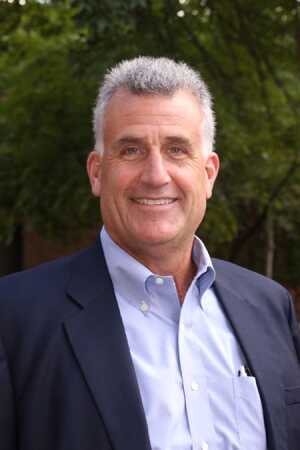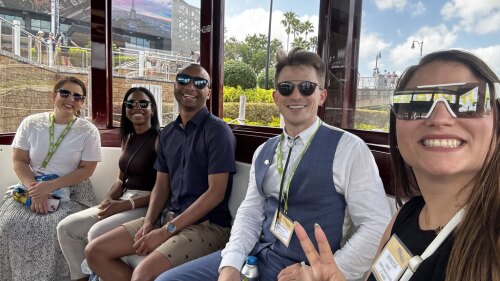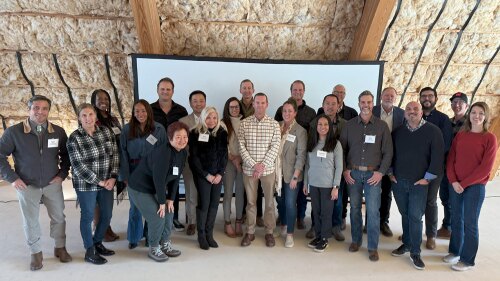ULI Global Board member Jack Chandler, founder of Majesteka Investments Holdings in Winnetka, Illinois, and former managing director and chairman of BlackRock’s global real estate business in New York City, has been named chairman of the ULI Americas region. As chair of the Americas Executive Committee (AEC), he will be working with his fellow committee members by leading the strategic implementation of the plan for the Americas region approved by the Global Board of Directors in FY 2018. Priorities include delivering greater member value through investments in people and technology to improve member connections and involvement; strengthening and broadening ULI’s member networks; and encouraging more philanthropic giving to expand ULI’s reach.
Furthermore, he will serve on both the Global Board and the ULIF Board to work with integration of the regions and the promotion of philanthropic efforts, while also providing strategic leadership to the Americas staff.
Congratulations on being selected chairman. Why are you taking on this position and what do you hope to achieve?
I’ve been a ULI member since fairly early in my career—it’s got to be pushing 25 or 30 years as a member. A couple of things were drivers for me. The first was a view of how helpful and enjoyable it was for me, early in my career, to have a forum to learn about the industry and to meet people. I always found that after virtually every ULI meeting I came away with a profoundly different way to think about an opportunity or an issue and a corresponding change in how I would be spending my time. The second thing I might add is that I went overseas to Asia in 2000—very early in the development of ULI in that part of the world—and as I reflected on that, I realized how much I had missed the infrastructure and the ability to get together with people in the industry to learn, to network, and to have fun. Not having that gave me a deeper appreciation of how special it was, and how much I enjoyed it.
I started getting more involved in ULI beyond being on a product council a couple of years ago when I joined the ULI Board of Directors and the AEC. I spent a lot of time working with [immediate past Americas Chairman] Trish Healy and the AEC board and staff in pulling the strategic plan together, and so my willingness to spend the additional time and to succeed Trish in this role was really driven by a strong view of how important ULI is and of how important it is to get the strategic plan implemented.
For me, the most important components of the strategic plan are to help the staff and leadership of ULI use technology to really build the infrastructure and the support to allow the members to achieve their goals. We’re fortunate to have over 40,000 real estate professionals who are doing amazing things, and I want to help the organization support these members throughout their careers, especially now that the organization is at a vastly different scale than it was when I got started. The members really are the focus and the intellectual capital and execution arm of the organization, and we have the challenge of getting the Institute’s infrastructure set up to support that and to identify and curate opportunities for members to do things that really make a difference.
Do you see the change in scale of the organization as an opportunity, a problem, or an issue to be managed?
Opportunity—obviously, or I wouldn’t have taken the role. Disintermediation is real—it is why I joined my new council. All organizations have to adapt to remain relevant in this new technology-driven world. I think it’s a wonderful tribute to the people in real estate’s willingness to contribute and collaborate. It’s a sign of a very healthy organization. But it could also become an issue if the enterprise doesn’t evolve in a way that helps those people contribute and that helps them get the value proposition they are looking for from ULI. I would say that’s a really good-news challenge. ULI’s values aren’t changing, but the delivery and the application must continue to embrace technology in a transparent and accessible manner.
How are you looking at the ULI Americas region, including Canada and Mexico?
Real estate investing and operations and enterprises have become increasingly global in the last couple of decades, and I think that’s something ULI has mirrored as it has expanded into other regions and countries. Many of the issues that ULI members need to—and want to—focus on transcend borders, whether those issues are congestion, affordable housing, zoning regulations, construction standards, or autonomous vehicles. I don’t view those as American problems or even North American problems.
One of the things ULI is trying to focus on as part of the Strategic Plan is to enhance the characterization of ULI as a philanthropic organization. How will that be part of your mission over the next two years?
My prior role was global treasurer, so I had the opportunity to learn and understand this part of the strategic plan. ULI is fortunate to have a very strong operating business as well as a substantial endowment, and the members and other parties have been extraordinarily generous, which puts ULI in a very strong financial position. I think part of the opportunity for ULI now is to communicate to members what it is using these resources for and how this work is making a difference. As the organization becomes better at communicating and demonstrating the value proposition—showing what this money is used for and what impact it has—I think members will be pleased and impressed. That will expand the financial support, leading to a virtuous circle: by virtue of doing meaningful work that is making a difference and is measurable, the organization hopes to generate more support so ULI members can do even more.
ULI has benefited from extraordinary support from leaders such as Gerald Hines and Ron Terwilliger. But it seems like this virtuous cycle could also be relevant to members who are giving smaller contributions.
While not all of our 42,000 members are in a position to contribute at the level of Mr. Hines or Mr. Terwilliger, I think the onus is on the organization to show all the members, in a very transparent way, what the money is used for and what the impact is. So, one of the things I’m very interested in is to help advance how those resources are used and our ability to communicate that to the members, so that there’s a very clear value proposition presented to a member as he or she thinks about the range of philanthropic choices before them, be that an alma mater or whatever their passion is. The onus is on ULI to demonstrate “here’s what we’re doing with the resources you give us, and this is the difference it’s making.”
Are there any ULI programs or activities that particularly resonate with you?
I think there are great programs that are done in cities, at regional meetings, at national meetings, and at global meetings. For me, the key is to make ULI as transparent as we can so that every member can understand what the options are and choose among them based on where they are in their career or what they’re looking for and what their passion is. We want to make it easier for people to get involved in ways that are meaningful for them.
Do you anticipate any identifiable challenges coming over the next two years, whether they pertain to the broader economy, to the real estate economy, or to ULI organizationally?
Everyone has the same cloudy crystal ball on the economy. I think for me the big communications challenge with ULI members is for them to understand that the organization has been making, through the Strategic Plan, a major shift in focus, committing a lot of resources to trying to expand the value proposition to members. A lot of that is aided by some very meaningful commitments we have made in technology. We need to bring the 40,000-plus members along on the journey so that they understand where we’re aiming and how things are going to unfold. With any project like this, the more people understand about the goal and where we are in the process, the more supportive they can be. Frankly, they will be able to understand why certain things they might wish were already in place are not in place yet and when those things are coming.
There are a lot of tools to access information, a lot of communication tools, a lot of tools to identify leadership opportunities, and those are all being developed at the same time we are running a very large, very substantial enterprise. So, these tools will be phased in. Different people may think that one set of tools is the most important, and we just need to make them understand how the organization is prioritizing them and when things are going to be done.
Technology is proving to be quite the disrupter in our communities, in business, and even within the projects our members are developing. What advice do you have to members about how they can navigate through all this disruption?
I think what we’re seeing is that real estate is an industry that is just seeing the impact of technology in a meaningful way now, quite a bit later than a bunch of other industries did. The proliferation of new firms and new technologies means that every year the real estate industry is going to work differently than it has historically, and so I think the message is that this is just beginning. Everyone needs to be up to date and aware and cognizant that value propositions and business models and ways of running the business are most likely going to need to evolve to be competitive. This is the beginning of what will likely be a continued move in the direction of more technology getting embedded in the industry. It seems to be highly unlikely to stop or go backwards, and it’s something that people need to understand and embrace.
What is the role for ULI for helping members understand and embrace that accelerated pace of change?
I think of ULI as the “big tent” for the real estate industry, where you have experts and practitioners from a very, very broad range of functions and disciplines. ULI has already taken some substantial steps in forming two new product councils focused on technology, in addition to producing seminars, symposiums, broadcasts, and things like that. Again, I think ULI is trying to be a place where the people and the expertise and the conversations can happen related to every aspect of real estate. That’s the role of ULI.
Could you tell us about what you’re doing professionally, outside of ULI right now?
I ran global real estate at BlackRock until last summer, and I founded a firm to invest in and support real estate tech companies. I founded a firm called Majesteka Investments Holdings that is investing in and providing active board-level strategic adviser support to entrepreneurs building real estate tech companies. When you ask me about tech, I’ve taken my own advice. These companies have a broad range of activities, including remediating contaminated land, a new building access and security platform, a single-family lease-to-own business, as well as working with some investment management platforms on a range of issues.
Is there anything you would like to add?
We now have two fully subscribed tech-related product councils with some terrific people who are running programs that focus on some of the sectors of real estate that are attracting substantial investment in new companies. We’ve been very aggressive in reaching out to parts of the real estate industry that maybe haven’t been traditional ULI members, so we have CEOs of some of these tech companies and venture capitalists and other early-stage investors. Many of these folks haven’t been active in ULI before, and I think it demonstrates the ability of ULI to be the big tent with the right people in the room—and with that, fascinating conversations. We are finding that the many different functions and roles within these companies like to hang with real estate people and understand how things are working. It’s a great conversation from everyone’s standpoint.





